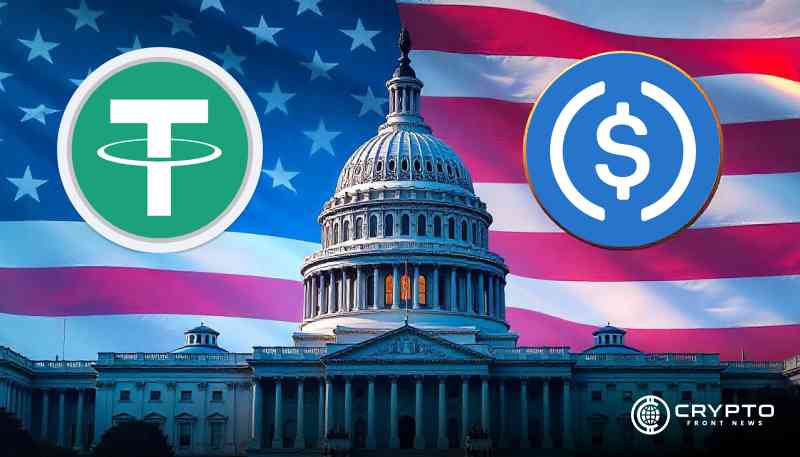- The GENIUS Act advances to Senate debate, signaling strong bipartisan momentum for stablecoin regulation amid rising political shifts.
- With the GENIUS Act targeting a Memorial Day passage, U.S. lawmakers aim to cement leadership in blockchain and stablecoin oversight.
- The crypto market rallied after the GENIUS Act vote, reflecting investor optimism over clear rules for USD1 and other stablecoins.
The U.S. Senate has taken a step forward in stablecoin regulation. The Guiding and Establishing National Innovation for US Stablecoins (GENIUS) Act cleared an important vote on May 19, according to Bitcoin Magazine. Senators voted 66-32 to invoke cloture, allowing the bill to move to the floor for debate. This development comes after a wave of shifting political support, particularly from key Democrats who previously opposed the bill. Consequently, the path to final approval is now open, with a target date set for May 26 — Memorial Day.
Notably, Senators Mark Warner, Adam Schiff, and Ruben Gallego reversed earlier objections. Their shift followed renewed concerns about America’s delay in leading blockchain innovation. Warner admitted unease over former President Donald Trump’s crypto ventures but emphasized the need to act. “Blockchain technology is here to stay,” he said. “If we don’t shape it, others will.” Besides Warner’s support, Republican Senator Cynthia Lummis remains a strong advocate. She expressed optimism the bill would pass before the Memorial Day recess.
However, not all Democrats are on board. Senator Elizabeth Warren strongly opposed the legislation. She criticized the bill’s failure to address Trump’s “blatant crypto corruption.” She accused Trump’s family of profiting heavily from crypto ventures. Their projects include memecoins, a crypto platform, a mining company, and USD1 — now the seventh-largest stablecoin by market value.
Key Provisions of the GENIUS Act
Senator Bill Hagerty introduced the GENIUS Act on February 4. The bill aims to bring clarity to the $250 billion stablecoin sector. It requires full asset backing and mandatory security audits for issuers. Moreover, only federally or state-approved entities can issue stablecoins. Algorithmic stablecoins, however, face tight restrictions under the bill.
The GENIUS Act builds on the Clarity for Payment Stablecoins Act first drafted by Patrick McHenry. Hagerty’s version strengthens compliance and oversight mechanisms, pushing the U.S. closer to a regulated digital currency environment.
Market Impact and Industry Momentum
Bitcoin surged 2.09% to $105,133 following the vote. Ethereum also rose 4.56% to trade at $2,512.42. Additionally, the crypto market reacted positively, signaling confidence in forthcoming regulation. This bill could define stablecoin policy for years. If passed, it may encourage greater institutional adoption and investor confidence across digital assets.





